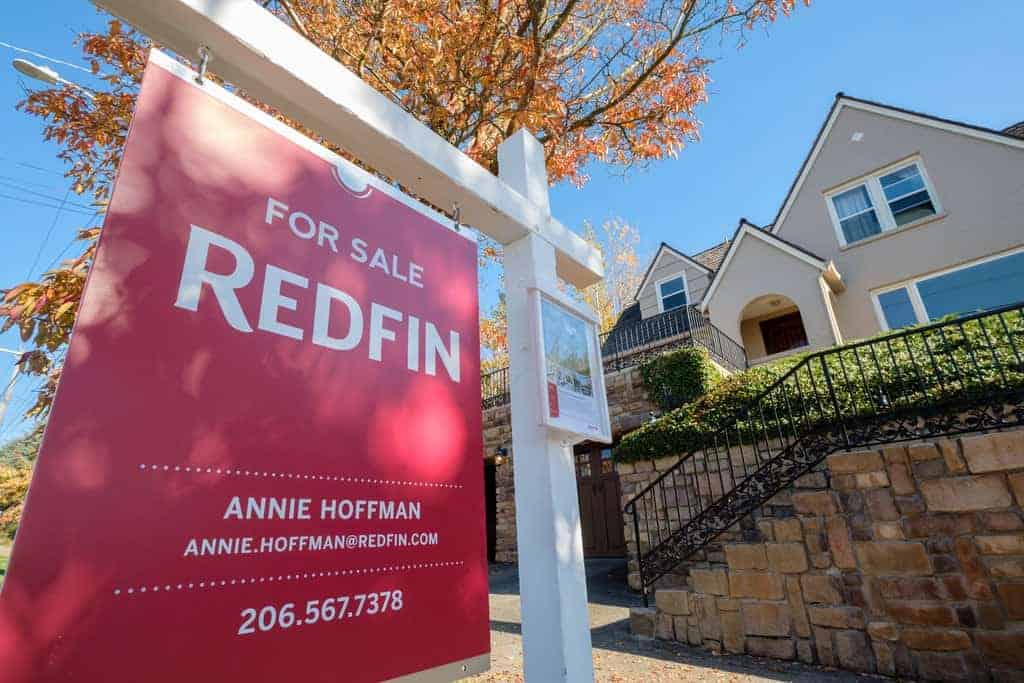
This past week, the new coronavirus caused a big drop in financial markets, spurring the Federal Reserve to drop interest rates by half a percentage point and leaving many Redfin customers wondering about the impact an outbreak would have on the economy and the real estate market.
As a behavioral economist, I counsel people to avoid making rash decisions based on fear and uncertainty. Instead, make decisions based on your financial situation.
What’s going on with the housing market right now?
Before the coronavirus concerns started in the United States, the housing market was strong, with our agents reporting intense competition among homebuyers. Put simply, there haven’t been enough homes to keep up with demand. January home prices were up 7% year over year, and home sales were up 7% as well. Historically, January has been a reliable predictor of the strength of the housing market for the entire year.
The stock market has been trending downward as it often does with uncertainty, which has had a negative impact on some buyers’ stock portfolios. At the same time, low mortgage rates have made homebuying more affordable. Freddie Mac reported the rate for a typical 30-year fixed mortgage fell to an all-time low. A buyer who has a $50,000 down payment and can afford to spend about $3,000 on her mortgage payment each month could afford a home around $540,000 if she got this week’s rate of 3.29%. She increased her purchasing power by about $20,000 compared to the start of the year when rates were at 3.72% and by about $50,000 since this time last March, when rates were at 4.41%. This drop in mortgage rates may be a boon to home sales if more buyers are motivated to complete deals and lock their mortgage rates.
That said, we’ve seen early signs that the coronavirus is giving pause to some buyers and sellers. But in this low inventory environment, even as some buyers drop out of the market, there are others who remain eager to get a home under contract while rates are so low.
Is now a good time to sell my home?
It’s still a seller’s market given the low rate and low inventory environment. I expect home prices and home sales to continue to rise because of strong domestic demand, even as we face lower demand from foreign investors.
If you’re ready to list but concerned about the spread of the coronavirus, speak to your agent about what can be done to market your home online and encourage virtual tours. For every home Redfin is hired to sell, we create a 3D tour that let’s buyers virtually walk through the home online. This makes it possible to skip the open house and easier to limit in person tours to only the most serious buyers. The CDC recommends everyday preventive actions, including disinfecting frequently touched objects and surfaces such as doorknobs and counters. Redfin agents will ensure disinfecting spray and sanitizing wipes will be on hand at each listing.
What is your advice to buyers?
Don’t try to time your decision based on speculation about home prices. Consider your personal financial situation and your job security. If you want to buy a home and feel confident in your financial position, don’t hold out for lower home prices. Even in the event of a recession, I expect home prices to remain fairly stable.
If you feel that this year is the right time for you to buy, I think there is an advantage to moving quickly. Mortgage rates may not stay this low for long, and there is a good chance competition and prices will heat up this summer, which is the typical time home prices peak each year.
Conveniently, you can conduct much of your home search from the comfort of your own home on Redfin.com. And if you’re concerned about touring homes in person, work with your Redfin agent to arrange a video tour. We’re now making it easy to request a video tour when you book a tour with a Redfin agent through our Book It Now feature.
Could the coronavirus cause a recession?
It’s too early to predict what will happen. We already know the outbreak in China has caused shortages and delays in supply of consumer goods and reductions in global travel. As the disease spreads, the economic impact will be amplified. If people stay home due to self-imposed or government-mandated quarantine, we’ll see significantly lower consumer spending, which will hurt the economy.
Will housing prices drop if the coronavirus causes a recession?
Historically, the housing market is relatively stable during a recession. Since 1980, there have been five official recessions in the United States. In all but the 2008 financial crisis, inflation-adjusted home prices only declined an average of 2.7 percent from the month before the recession began to the final month of the recession, according to our analysis of home price index data from Robert Shiller. In the 2008 recession, which started with a housing market crash prices fell 17%; in the 2001 recession home prices actually increased 4%.
Even though the last recession and foreclosure crisis is fresh in our minds, that particular recession was unusual because it started in the housing sector. It isn’t a standard for how most recessions occur. The fundamentals of the economy remain strong with high employment. If the virus is contained and fear subsides, even if we do see a recession, it will likely be short-lived.
How much money should you reserve in case a recession happens?
My general advice, which applies to every homeowner or buyer, is to have a financial cushion in place. Six months of income set aside is a safe amount, because that’s a reasonable length of time to find a new job if you lose it. This emergency fund could save you from missing mortgage payments or selling at a loss.
This post first appeared on Redfin.com. To see the original, click here.

